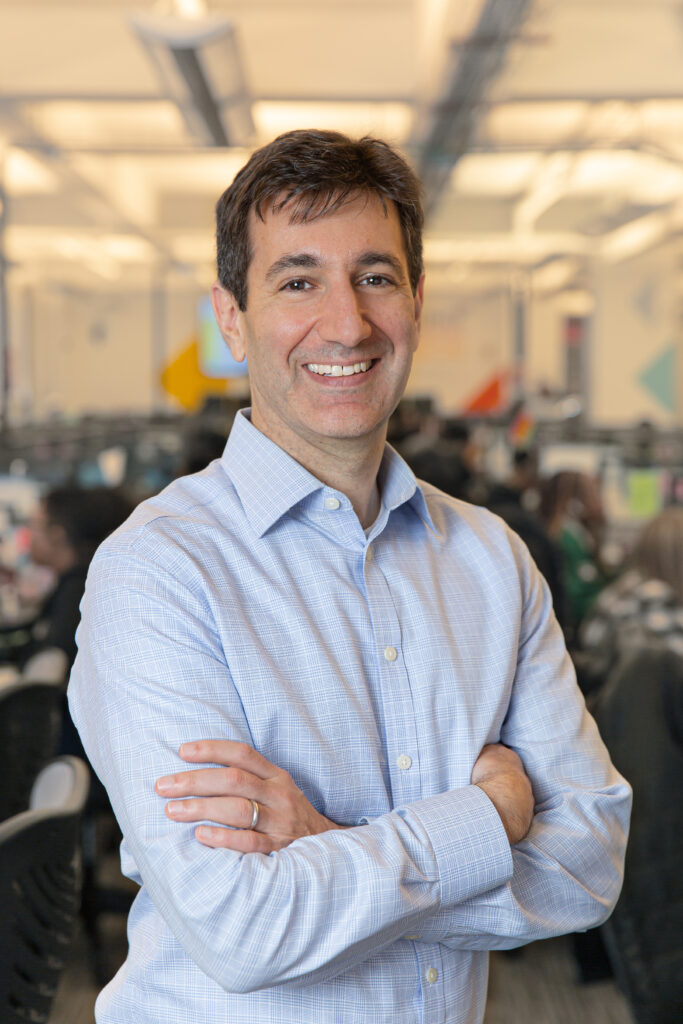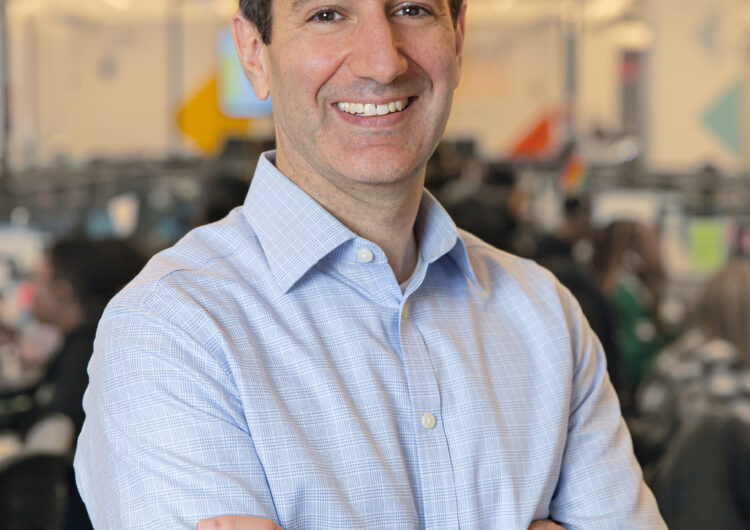
Payoneer CEO Scott Galit
By Jarrett Banks
Payoneer was founded on the basis that technology and the internet were transforming commerce and making it possible for anyone anywhere to build and grow a digital business. In 2020, Payoneer processed over $44 billion in transaction volume for over 5 million customers in over 7,000 unique trade corridors.
Payoneer recently reported financial results for its first quarter ended March 31, 2021, and the company is off to a strong start in 2021, beating each of its key internal metrics and accelerating growth, while surpassing $100 million in quarterly revenue for the first time. The company’s volume increased 61{efe5d79870c08482e17ab0c97855f89429dac5f22c46026d3ca83573faec2208} to $13.3 billion compared to $8.3 billion in 2020, and revenue increased 23{efe5d79870c08482e17ab0c97855f89429dac5f22c46026d3ca83573faec2208} to $100.6 million compared to $82 million in 2020.
To capitalize on this growth and tremendous market opportunity ahead, Payoneer recently signed a merger agreement with FTAC Olympus Acquisition Corp. (Nasdaq: FTOC), a special purpose acquisition company, as a route toward becoming a public company with capital market access. The business combination is expected to close before the end of the second quarter of 2021 or shortly thereafter, subject to satisfaction of customary closing conditions.
IPO Edge sat down with Payoneer CEO Scott Galit, to discuss what the merger with FTAC Olympus means for the business, and the ripe opportunities ahead for Payoneer.
IPO Edge: Tell us a little bit about who Payoneer is and what differentiates you in the market?
Payoneer is a leading global payment and commerce-enabling platform that powers growth for millions of digital business worldwide. Our mission is to democratize access to financial services and drive growth for digital businesses of all sizes from around the world. Payoneer’s secure, regulated platform offers a global, multi-currency account to businesses, enabling them to pay and get paid globally as easily as they do locally. Our digital platform streamlines global commerce for millions of small businesses, marketplaces, and enterprises from 190+ countries and territories.
Our global platform, brand, product suite, and network create significant and sustainable competitive advantages, and our multi-pronged growth strategy will deliver strong growth for years to come. Payoneer has built a broad ecosystem that connects marketplaces, sellers, freelancers, gig workers, manufacturers, banks, suppliers, buyers and more on an integrated global platform. We’ve built a modern platform geared to connect our entire world together on a single infrastructure, remaking and evolving financial services for the digital economy.
Digitalization is accelerating, cross-border commerce is growing, and marketplaces are playing an important role. These secular trends are very powerful and have provided a good foundation upon which we have built a meaningful brand, large customer base, and a great ecosystem. As digital commerce grows, we continue to see our business growing with it, and we can help our customers do better. All of these forces combined are creating exciting opportunities for Payoneer all over the world.
IPO Edge: Why did you decide to go public via a SPAC merger, and what sets you apart from other SPACs? Why should investors care?
We believe this transaction represents the best available path forward with respect to Payoneer’s business. Our business is currently at an inflection point with a high growth trajectory. Going public via a SPAC gives Payoneer the ability to share projections (vs. an IPO process during which this isn’t possible) to tell a clearer financial story coming out of COVID-19, certainty of financing and pricing, and an incredible platform for future growth that would not have been available through a traditional IPO. Working with an experienced SPAC management team led by Betsy Cohen was a strong consideration as well. The team at FTAC Olympus Corp. have great experience in fintech, and we viewed them as a valuable partner through this process.
Maybe most importantly, Payoneer was well prepared to be a public company. Payoneer has a scale business, a proven team with a demonstrated ability to drive growth and shareholder value and a massive addressable market with strong tailwinds. Our robust global platform, brand, product suite, and network effects create significant and sustainable competitive advantages. Our platform provides global connectivity with localized capabilities, and is underpinned by a robust, scalable compliance, risk and regulatory infrastructure. We have expanded well beyond marketplace payments to provide critical services that reduce friction and facilitate customers’ global growth to over 5 million businesses worldwide.
IPO Edge: What was it about Payoneer that attracted FTAC Olympus to you? And what was it about them that makes this a good partnership for you?
I’ve known Betsy Cohen for over a decade, as an industry colleague first, and then as she has been building her platform with the FTAC group. We’ve kept in touch over the years, and we saw a great opportunity to work with Betsy and her terrific team, which brings deep expertise in the fintech and financial services sectors, and is recognized as a leader and pioneer in the SPAC market.
Payoneer stands out for a number of reasons, not least among them our scale, unique global platform, sizeable global customers base, and market penetration. We sit at the center of two-sided networks, helping connect marketplaces, SMBs, buyers, and suppliers all over the world. The recent acceleration of trends around digitization and ecommerce create a fertile environment for our proven, purpose-built platform to assist businesses of all shapes and sizes, from all over the world, accelerate their growth in a digital world.
Going through this with someone that we really respect and appreciate as a partner and colleague in the industry is a major advantage. Betsy and her team really have been everything as advertised – really wonderful people to work with, and the type of people that we’ve been attracting at Payoneer from the beginning. So far it really has been a pleasure every step of the way.
IPO Edge: Can you talk more about Payoneer’s growth strategy, overall mission and plans for using the capital you’ve raised here?
We have an exciting multi-pronged strategy for growth, both organic and inorganic. The solutions we have coming to market – B2B AP/AR, Merchant Services, Working Capital and our Commercial Card among them – will increase growth, accelerate customer acquisition, and increase customer retention. What we’re really seeing is that businesses of all sizes all over the world need help, and there aren’t a lot of partners out there that are well positioned to give them the tools and the support they need to succeed, overcome their challenges, and take advantage of the opportunities the world of digital commerce provides. So for us, we’ve set out on an aggressive path to build more services, and to deliver more capabilities for more customers around the world than ever before.
We are actively investing in building out more of our team in markets around the world and make acquisitions. In early 2020, we acquired a company called optile to mark our entry into merchant services. We viewed the acquisition as a real validation of our ability to expand our services, and not just organically with more product and technology investments. Further acquisitions will be easier in the public markets, and we plan to do more of them, as we hired a Chief Strategy Officer last year to help us build out and execute on a global M&A strategy. All of this is ahead of us, and we really believe we’re just scratching the surface of the opportunity afforded by our aggressive growth strategy.
IPO Edge: How has COVID-19 impacted your business? And did it contribute to your decision to pursue the public markets via a SPAC?
Overall COVID has had the impact of accelerating digital trends, and we see that as a long-term positive for Payoneer and digital businesses around the world. The impact in 2020 on our results was somewhat mixed, as industries like ecommerce and freelancing saw strong growth over the last 12 months, while the travel industry was negatively impacted.
As Payoneer is a global company, we saw the impact of COVID much earlier than many of our counterparts. We saw massive impact in China, and then the downstream impact on supply chains to businesses around the world. This gave us some insight into what was coming in the markets that were hit later on, and also gave us visibility into our way out of the crisis.
We had considered multiple paths to enter the public markets over the past few years. With COVID, we really saw the rapid acceleration of digital trends, and as we made our way through 2020, it became clear that many of these changes in consumer and business behavior were here to stay. Last year was an inflection point for us, and we made the decision to lean in more heavily and move a bit faster to the public markets.
We saw the SPAC as a great opportunity to do that. 2020 ended up very strong for us overall, but there was some choppiness. As a result, the ability to share projections in particular allowed us to really tell our forward-looking story more clearly.






